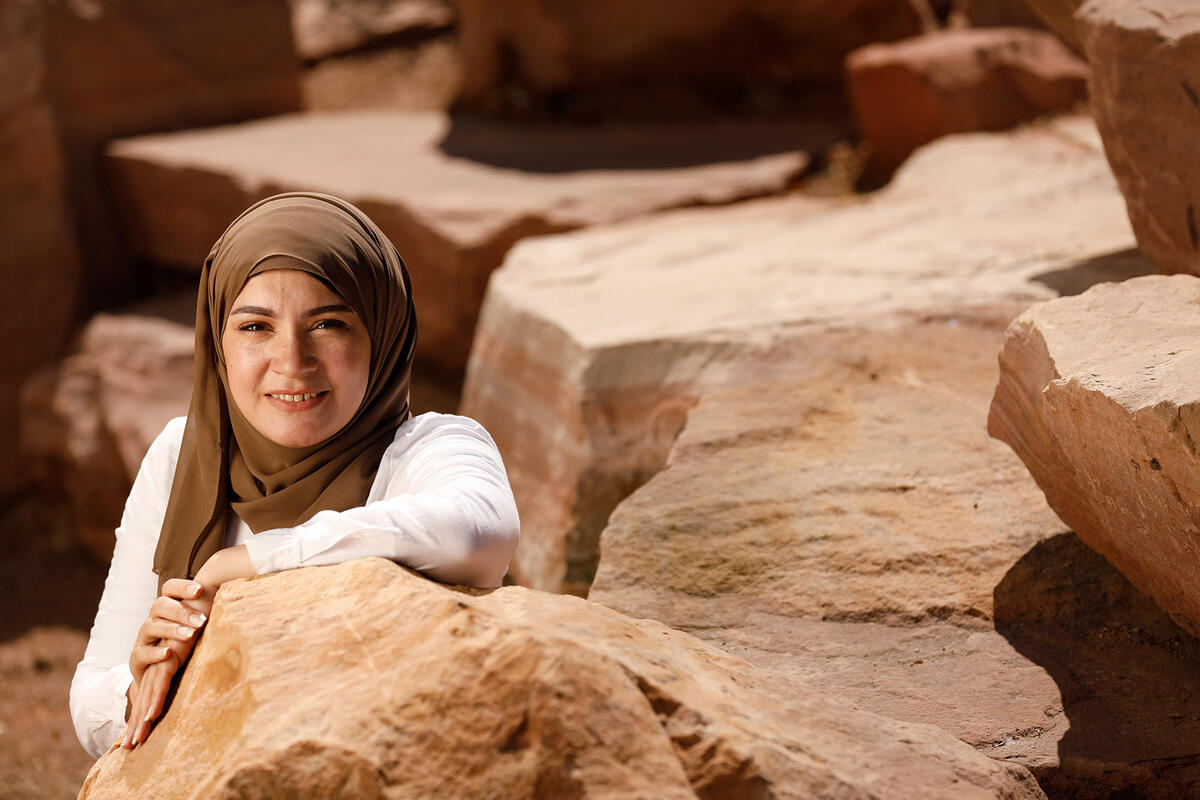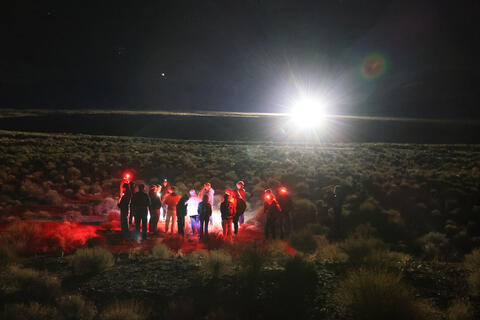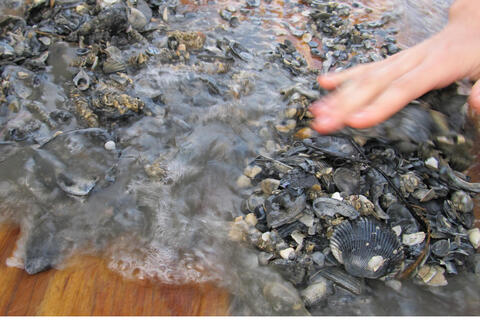
Department of Geoscience News
Geoscience is an all-encompassing term used to refer to the earth sciences. The Department of Geosciences offers programs at the undergraduate and graduate levels where students can learn about topics such as earth processes; the origin and evolution of our planet; the chemical and physical properties of minerals, rocks, and fluids; the structure of our mobile crust; the history of life; and the human adaptation to earthquakes, volcanoes, landslides, and floods.
Current Geoscience News

Some of the hottest headlines featuring UNLV faculty, staff, and students.

Decades of infrastructure improvements and evolving standards show how UNLV has embedded accessibility into campus planning, design, and digital spaces.

UNLV engineering and science students test an experiential course partially designed for NASA astronauts who will soon return to the moon.

The top news stories starring university students and staff.

Research published in PNAS confirms fossilized marine invertebrates serve as a powerful tool for understanding long-term ecological change and informing modern conservation efforts.

The top headlines featuring UNLV’s staff and students.
Geoscience In The News

The seven states that share the Colorado River did not meet a deadline for an agreement on water cutbacks. What is next for this vital water source in the West?
When you picture a desert, you probably imagine a vast, empty landscape far from any water. But surprisingly, some of the driest places on Earth lie right beside the ocean. Both the Atacama, in Chile, and the Namib, in southern Africa, stretch along coastlines. So how did these extreme deserts form in places bordered by so much water?

Red Rock Canyon draws climbers from around the world, offering towering sandstone cliffs just minutes from the Las Vegas Strip. However, after rainfall, those iconic red walls can be more dangerous than they appear — even when the rock looks dry. According to Zach Perzan, an assistant professor of geology at the University of Nevada, Las Vegas, the sandstone at Red Rock — known as Aztec sandstone — is made up mostly of quartz grains held together by a relatively small amount of natural cement.

Gold briefly topped $5,100 per ounce for the first time Monday, and as the fifth-highest gold producer in the world, this is good news for Nevada. With gold hitting a record on the global market, for Nevada, this means more jobs, more tax revenue and more gold exploration, according to mineral and mining experts.
Humans are some of the greatest builders on the planet, but we’re not the only ones. Beneath the ocean, some unlikely creatures build breathtakingly intricate structures with a variety of clever techniques and materials. Underwater homes serve many purposes: they shelter offspring, offer refuge from predators, and in some cases, support entire ecosystems. Some of these creatures even open their homes to other species. And some can even be kept in a home aquarium, where you can watch them build their homes.

What if Howard Hughes, Hoover Dam, or the family-friendly era had never arrived to change Sin City? It’s time to go into the Vegas multiverse.
Geoscience Experts





